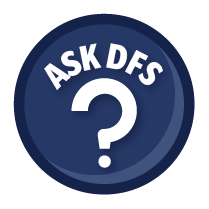Purchasing Insurance
Do you want to purchase insurance coverage but need information concerning the process and how to protect yourself? The topics below will help you understand the process of purchasing insurance.
Make sure that the company, broker or agent is licensed to do business in Florida before you sign a contract or write a check. It is illegal for companies or individuals to market insurance in Florida without a license. Agents must be licensed and must have active appointments with specific companies in order to legally sell insurance products. Use the links below to verify through our records that the entity is authorized and licensed to transact business in Florida or with Florida residents.
Regulatory Actions Against Companies
- Life and Health Companies
- Property and Casualty Companies
- Health Maintenance Organizations
- Unlicensed Entities
- Financial Information
If you suspect an entity is not authorized or licensed to transact insurance in Florida, from Florida or with residents of Florida, please notify our office. Call 1-877-MY-FL-CFO (1-877-693-5236) to report suspect unlicensed activity.
There are several financial services companies that provide ratings of U.S. insurance companies. The four major rating companies include:
- A.M. Best Company (website: www.ambest.com)
- Fitch Ratings. (website: www.fitchratings.com)
- Moody's Investors Services (website: www.moodys.com)
- Standard & Poor's Corporation (website: www.standardandpoors.com)
And one of the most widely known rating service companies that reviews start-up insurance companies, or insurance companies with less than five years of historical operating experience is:
- DemoTech (website: www.demotech.com)
Please Note: These are independent insurance company rating organizations. Their appearance on the department's website is not an endorsement by the Department of Financial Services for any of the organizations. The listing is meant for the convenience of the department's consumers when selecting an insurance company.
Each of the rating service companies have developed a rating system that uses one or more letters of the alphabet to describe an insurer's financial condition. The ratings generally are shown as A++ (being the best) to D or E. The factors taken into consideration include company earnings, the company's financial reserves compared to the total value of the outstanding risks, the ratio of the companies fixed costs to the company's variable costs, the availability of liquid assets of the company, the performance of the company's investments, reinsurance programs, and the management's ability, integrity and experience.
While the companies use similar data to calculate their ratings, no two systems are alike. Rating service companies develop their own criteria for rating insurance companies. Some rating service companies may only rate insurance companies who have five or more years of financial data, or who have a higher volume of policies. Since the rating companies develop their own rating criteria, an insurance company's rating may be different between rating service companies.
It is important to remember that an insurance company's ratings reflect their financial ability to pay claims. The ratings are not a measure of the quality of the company's claim handling services. Because the rating systems vary, and the classifications used by rating firms are broad, it's a good idea to consider ratings from several sources when evaluating an insurer.
Need help finding insurance?
Health Insurance
Looking for Health Insurance
- Individual Health Insurance Market Carrier List (for policies effective on or after January 1, 2026)
- Individual Health Insurance Market Carrier List (for policies effective on or after January 1, 2025)
- Small Group Market Carrier List (for policies effective on or after January 1, 2026)
- Small Group Market Carrier List (for policies effective on or after January 1, 2025)
- CHOICES - Auto, Homeowners, Medicare Supplement and Small Group Health Rate Comparison System
- Looking for Health Insurance (HealthCare.gov)
Options if you can't find an agent or coverage
When selecting an agent, choose one who is licensed to sell insurance in Florida. Some agents have professional insurance designations such as the following:
CEBS..... Certified Employee Benefits Specialist
CFP......... Certified Financial Planner
ChFC...... Chartered Financial Consultant
CIC......... Certified Insurance Counselor
CLU........ Chartered Life Underwriter
CPCU..... Chartered Property and Casualty Underwriter
LUTCF.....Life Underwriting Training Council Fellow
RHU........Registered Health Underwriter
Make sure you select an agent with whom you feel comfortable and who will be available to answer your questions. Remember: An agent may represent more than one company. To verify whether an agent is licensed, call the DFS Consumer Helpline toll-free at 1-877-MY-FL-CFO (1-877-693-5236).
When selecting an insurance company, it is wise to know that company's financial rating. Several organizations publish insurance company ratings and resources are available in your local library and on the internet. These organizations include: A.M. Best Company, Fitch Ratings, Moody's Investors Service, Standard & Poor's and Demotech. Companies are rated on a number of elements, such as financial data (including assets and liabilities), management operations and the company's history.
Before buying insurance, verify whether a company is licensed to sell insurance in Florida by calling the DFS Consumer Helpline toll-free at 1-877-MY-FL-CFO (1-877-693- 5236). Be sure to have the full, legal name of the insurance company when you call.
The application process can vary depending on the type of insurance being purchased. However, in all cases the questions on the application must be answered correctly. If incorrect information is given on an application, whether intentional or not, the policy may be rescinded and a claim denied at a later date. If the agent completes the application, make sure you review all the questions and answers before you sign. Also, keep in mind the quote you receive from the agent is an estimate and may be changed by the insurance company, depending on current rating factors and underwriting guidelines.
Things to remember during the application process:
Auto Insurance
- Make sure all licensed drivers in your household are listed on the application.
- The agent may need to inspect the vehicle or take pictures before coverage can be provided.
- The agent may need a copy of your prior insurance policy.
- The agent may ask for the name and social security number for all listed drivers.
Life and Health Insurance
- You may be asked to take a physical or blood test.
- Keep in mind that coverage may not begin until approved by the insurance company.
Homeowners Insurance
- The agent may ask to take pictures of your home.
- The agent may ask for documentation to prove any updates to the plumbing, wiring, or heating/air conditioning.
- The agent may ask you to have your home inspected for mitigation credits.
- The agent may ask for a copy of your prior insurance policy.
- The agent may ask for the name and social security number for all residents of the household.
Once your application for insurance is received by the insurance company, they decide if the applicant or the property is eligible for coverage. All insurance companies use guidelines to determine eligibility. When the underwriting process is complete the company determines the final premium.
The company may review some or all of the following items, depending on the type of policy:
Auto Insurance
The company reviews the type of vehicle, the age of the vehicle, the age of the drivers, the experience of the drivers, the violations received by all drivers, the number of accidents for all drivers, where the vehicle is kept, how the vehicle is used, and how many miles are driven each year.
Homeowners Insurance
The company reviews the construction of the home (frame, brick, etc.), the year the home was built, the age, type, and construction of the roof, where the home is located, how the home is used, the square footage, whether the home has items that qualify for hurricane mitigation credits, prior claims history, and the existence of prior insurance.
Life Insurance
The company may review your health history, your age, and your occupation to determine eligibility. The company may elect to cover you but exclude benefits if you die from certain illnesses (called riders or exclusions).
Health Insurance
There are instances where an insurance company must issue a health insurance policy regardless of the factors listed here. However, there are also instances where the company will base their decision to cover you on the following: Your age, your health history, and your occupation. They will normally ask for proof of any previous health insurance as well which may satisfy any pre-existing condition exclusion in the policy. The company may elect to cover you but exclude benefits for certain illnesses (called riders or exclusions).

